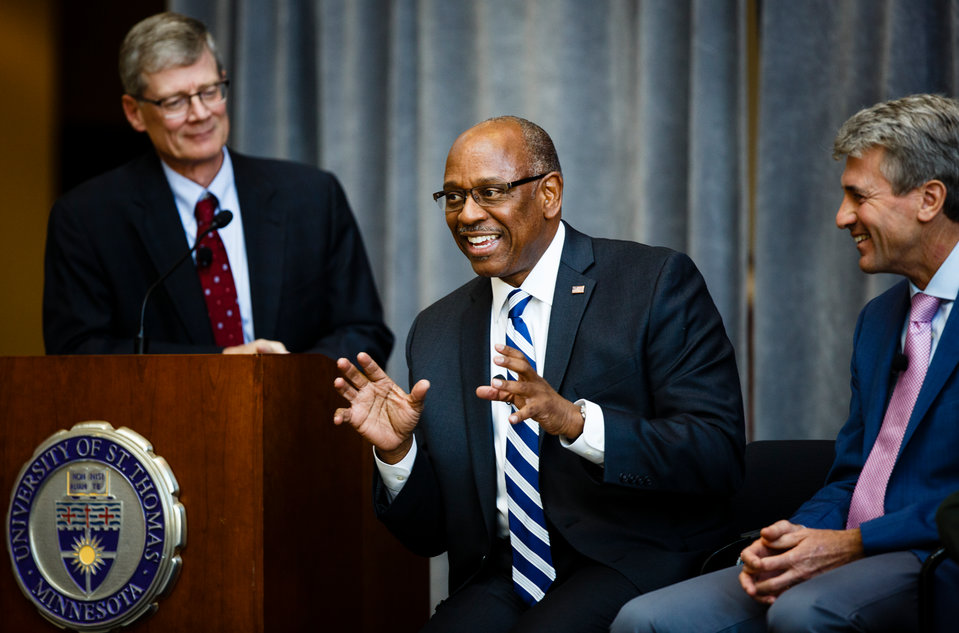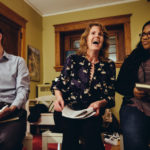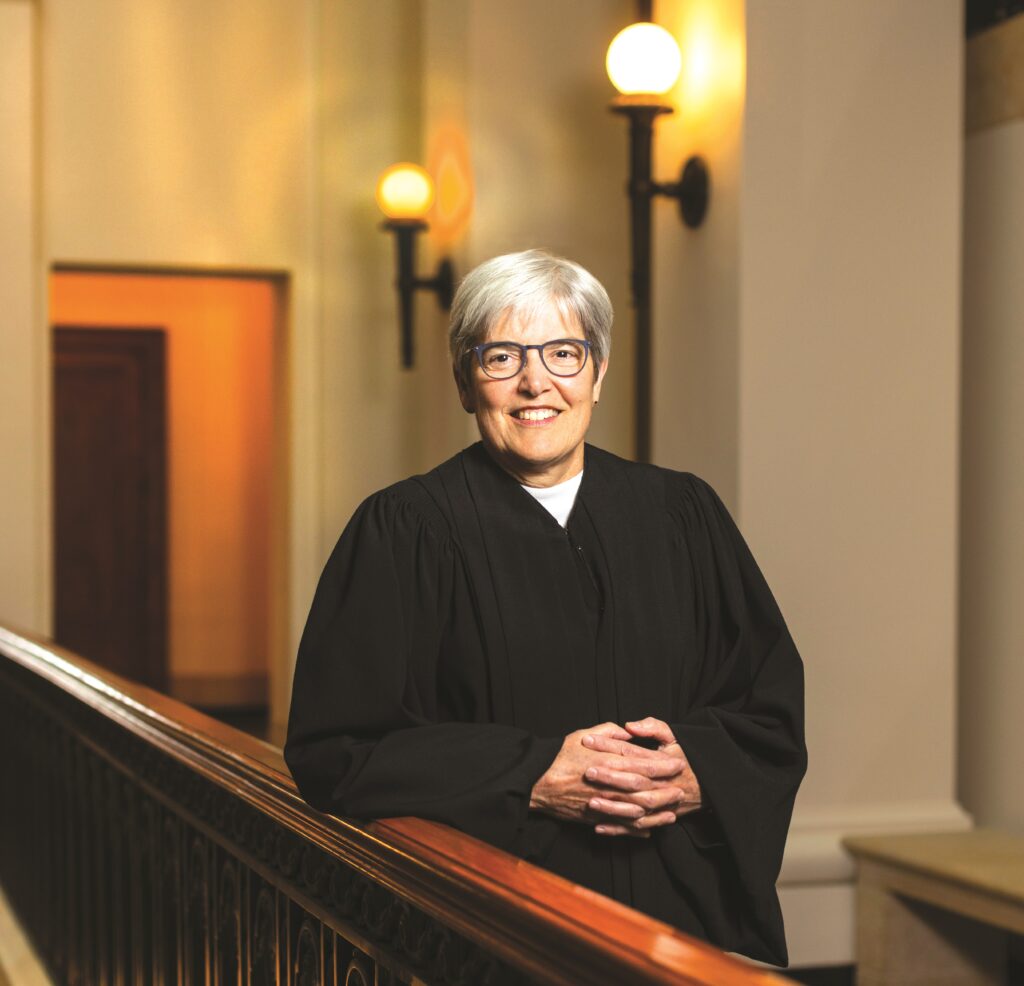“The many situations of inequality, poverty and injustice are signs not only of a profound lack of fraternity, but also of the absence of a culture of solidarity. New ideologies, characterized by rampant individualism, egocentrism and materialistic consumerism, weaken social bonds, fueling that ‘throw away’ mentality which leads to contempt for, and the abandonment of, the weakest and those considered ‘useless.’”
– Pope Francis
Pope Francis spoke about “the absence of a culture of solidarity.” At St. Thomas Law, nothing could be further from the truth.
“We are neighbors to every other person without exception,” said Dean Robert Vischer.
The law school’s commitment to solidarity shows itself in many facets of the school’s work, such as its Mentor Externship Program, which places each student in a relationship with a mentor from the beginning of their school experience; its legal clinics, which allow students to work with people who are victims of injustice; its Prolife Center, which promotes effective legal protection of human life; and its commitment to addressing issues related to race in the United States.
After they graduate, alumni carry this commitment to solidarity with them. Visiting professor of law Carl Warren, who teaches with the Community Justice Project at the School of Law, said, “A law degree is a powerful tool. While it gives students access to a profession and a career, it also equips them with tools to achieve effective change, no matter what their career.” Some alumni help others through pro bono work while they are involved in traditional practice, and others serve “the weakest and those considered ‘useless’” full time.
A Supportive Community
When Sarah Brenes ’08 was looking for a law school, she knew that she wanted a career in which she could reach out to others and engage in meaningful, transformative conversations and actions. She found it at the St. Thomas School of Law.
“There was a lens of service at St. Thomas that I valued. There was also a sense of community, of helping each other as colleagues, that made the school more welcoming,” she said.
She found that clinical work was one way she could work in solidarity with those seeking to create a new home in the U.S. But she also found that she was fostering solidarity with students from St. Thomas’ Graduate School of Professional Psychology and the St. Catherine-St. Thomas School of Social Work as they worked together to meet clients’ needs.
Now, as director of the Refugee and Immigrant Program at The Advocates for Human Rights, Brenes continues to collaborate with other professionals and organizations. Refugees need services from different agencies – an asylum-seeker fleeing a dangerous situation might need legal assistance from The Advocates for Human Rights, counseling services from the Center for Victims of Torture, and help finding a job from the International Institute of Minnesota.
Because these different organizations all have an interest in serving refugees, Brenes worked along with partners at the International Association for Refugees to start the Minneapolis-St. Paul Asylum Support Network. The agencies in the informal network engage in brainstorming sessions together and share knowledge in order to collectively support asylum seekers. The network has brought about changes that seem simple, but are immensely helpful to clients, such as adding a play area to an immigration court and providing groceries to clients who are unable to access transportation to food shelves.
Creating Safe Spaces
St. Thomas Law’s work to foster solidarity also includes efforts to create safe spaces for discussions related to race in the United States. These efforts have included a forum on public safety and racial justice, hosted by the Terrence J. Murphy Institute for Catholic Thought, Law, and Public Policy; a listening session on how issues related to race are discussed in the classroom; and book groups focusing on different texts related to racism.
The book discussions grew out of an idea proposed by professor Julie Oseid, who emphasized that each gathering should include two leaders: one professor and one student. The original plan was to form each group around a small number of student participants, but they generated more interest than expected. As the conversations were opened to faculty and staff members and participant numbers approached 20, Dean Robert Vischer asked for additional leaders so that there could be more groups. Participants discussed one of three books: The New Jim Crow by Michelle Alexander, Between the World and Me by Ta-Nehisi Coates and Hillbilly Elegy by J.D. Vance.
Oseid and first-year student Kay Bolanos were two of the co-leaders for the discussion of Between the World and Me. “Literature has always been a way into someone else’s experience – one that’s different from your own,” Oseid said. “I want participants to experience life in America for someone different from themselves.”
Bolanos said that it was important to provide a space for people to have an open conversation – something she has tried to foster with fellow students. For her, the book discussions open the door to future dialogues and to small changes that lead to solidarity. “When I told my mom about the book discussion, she asked, ‘What’s that going to do?’ I told her we’ll touch someone, change someone, even just a little. That’s better than nothing.”
Oseid, too, hopes for continuing conversations in the future. “Our school can take a leadership role of offering healing in a broken world. The world needs models of places where conversations happen, not just in book groups. We need to be able to discuss issues of diversity civilly, deeply and safely.”
Read more from St. Thomas Lawyer.








